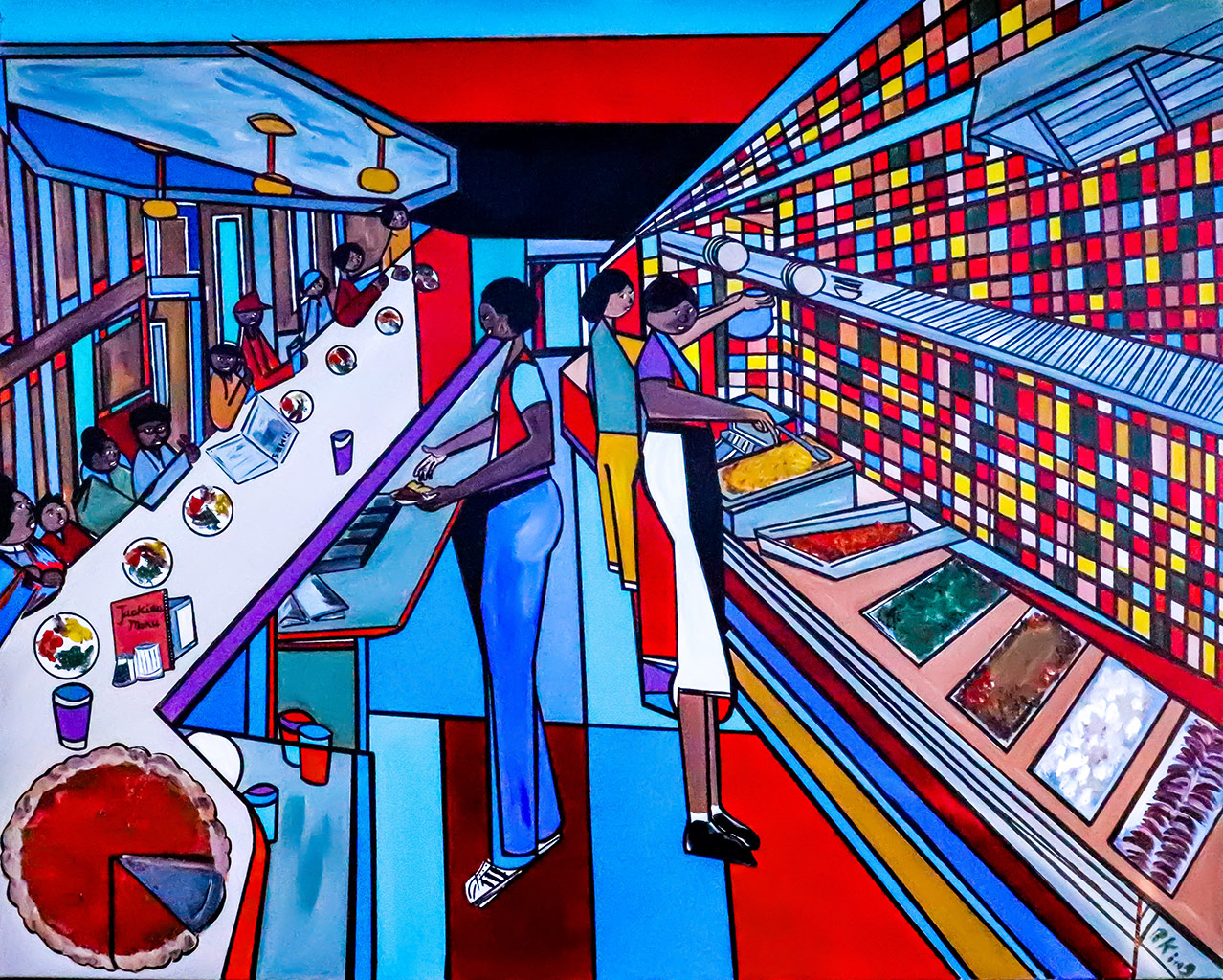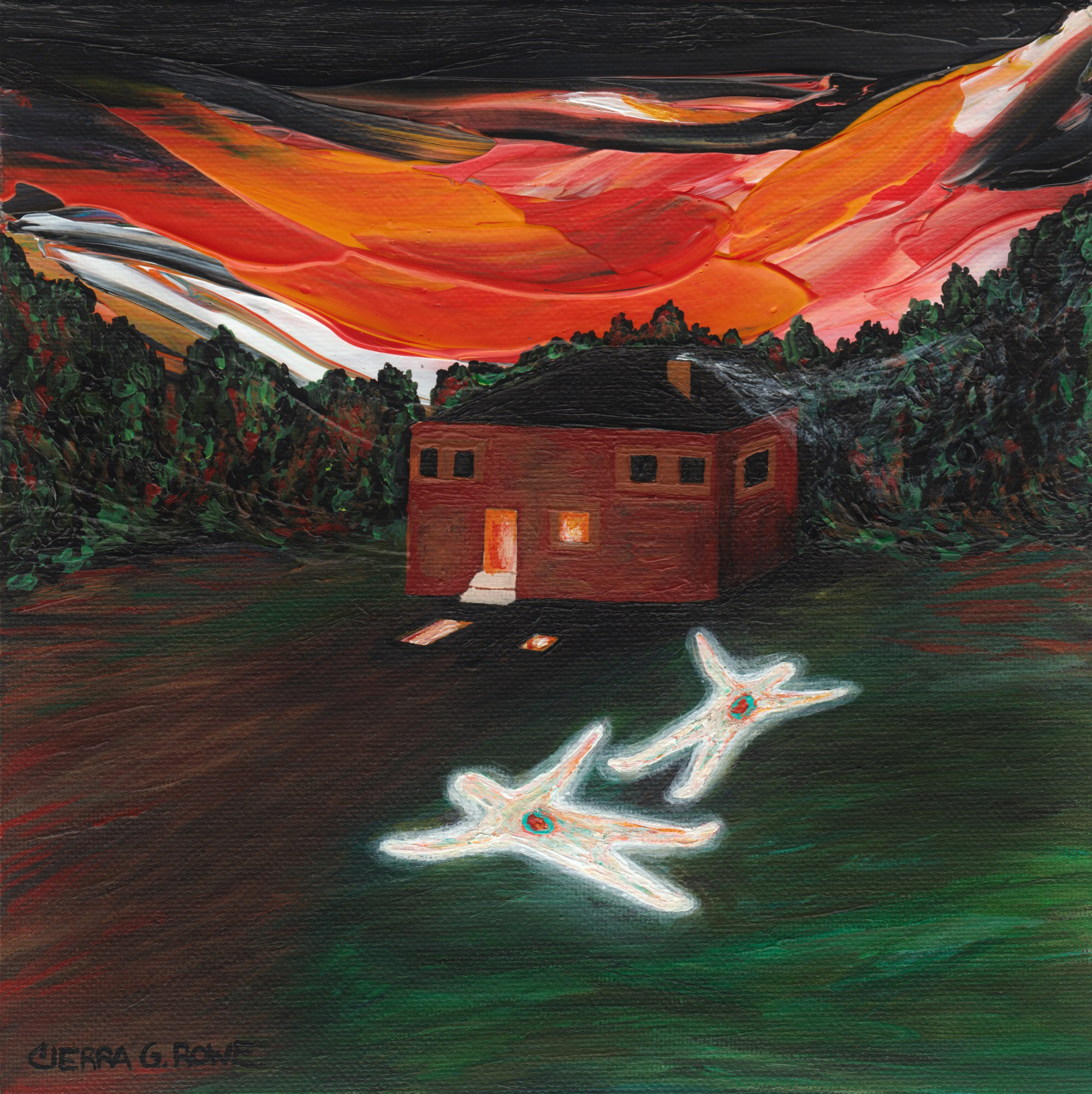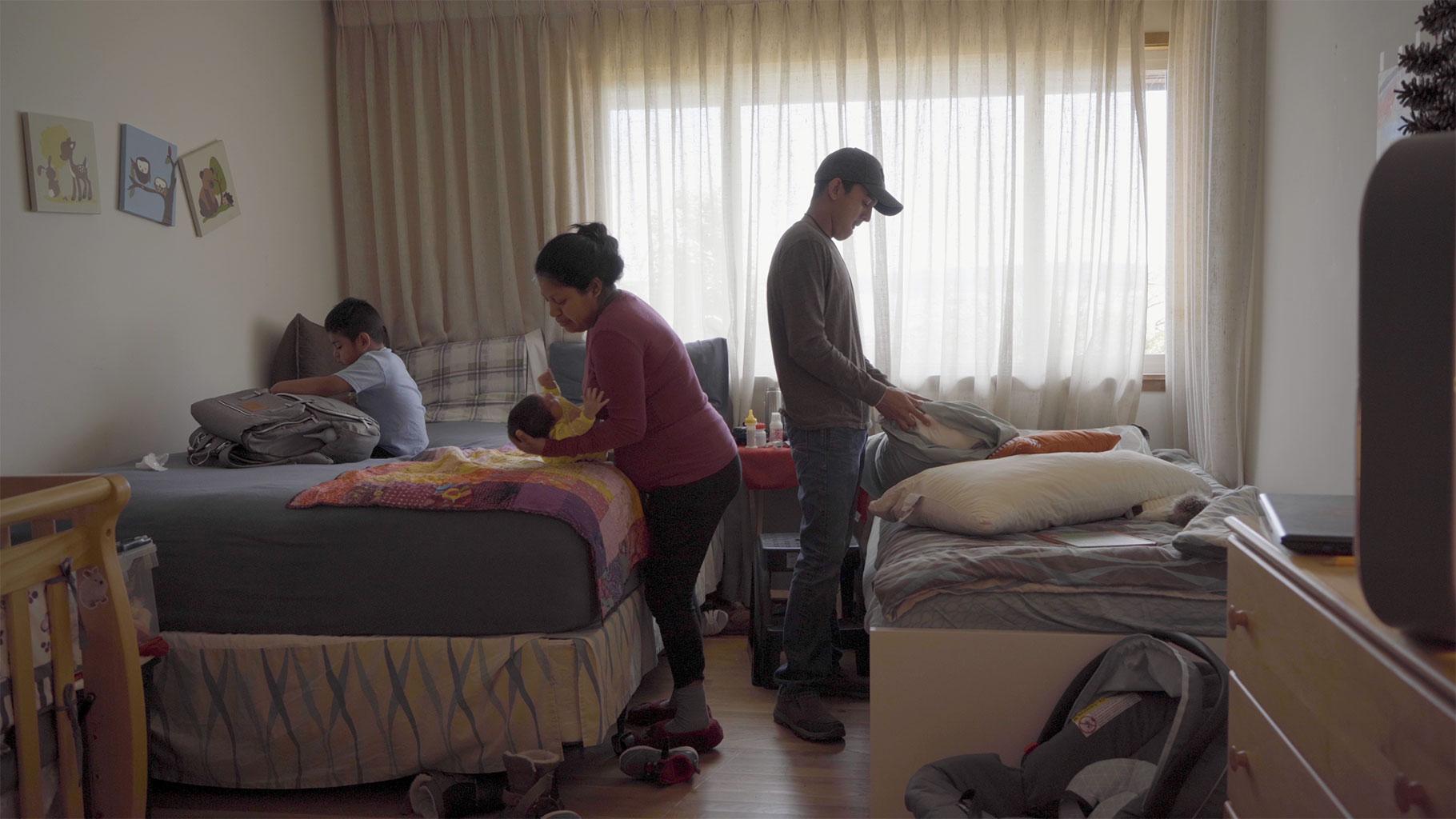
Capturing the Whole Human Story
When Voge began shooting the film in April 2018, she was living in Colombia as a freelance journalist and decided to go to Mexico to cover the story of a “migrant caravan” — a group of migrants traveling to the United States — which had captured the attention of the Trump Administration and the media. Voge first met Magdiel when they were both about to board the cargo train infamously referred to as “The Beast (La bestia),” which countless migrants travel on each year while crossing Mexico.
“The intention was to build out their whole personalities as full humans, which I think is a more powerful way to build empathy,” Voge comments, regarding the documentary’s decision to focus on just Magdiel’s family. “They are people, humans, just like yourself, no matter who you are, and who they are.”
The unfortunate reality is that most refugees like Magdiel, Mirna, and Joshua are displaced from their homes for a multitude of reasons beyond their control. Sometimes they trudge through relentless deserts with the scorching sun beating down as they march for hundreds of miles with limited water. Journeys can be a grueling marathon of cramped buses and sweltering trains, where air conditioning is a distant dream, and families can easily be separated. Lamentably, when they finally reach U.S. soil, the nightmare continues as many are often cruelly torn apart from their loved ones and placed in detention centers. This perilous trek claims countless lives, leaving behind a trail of tragedy and heartache.
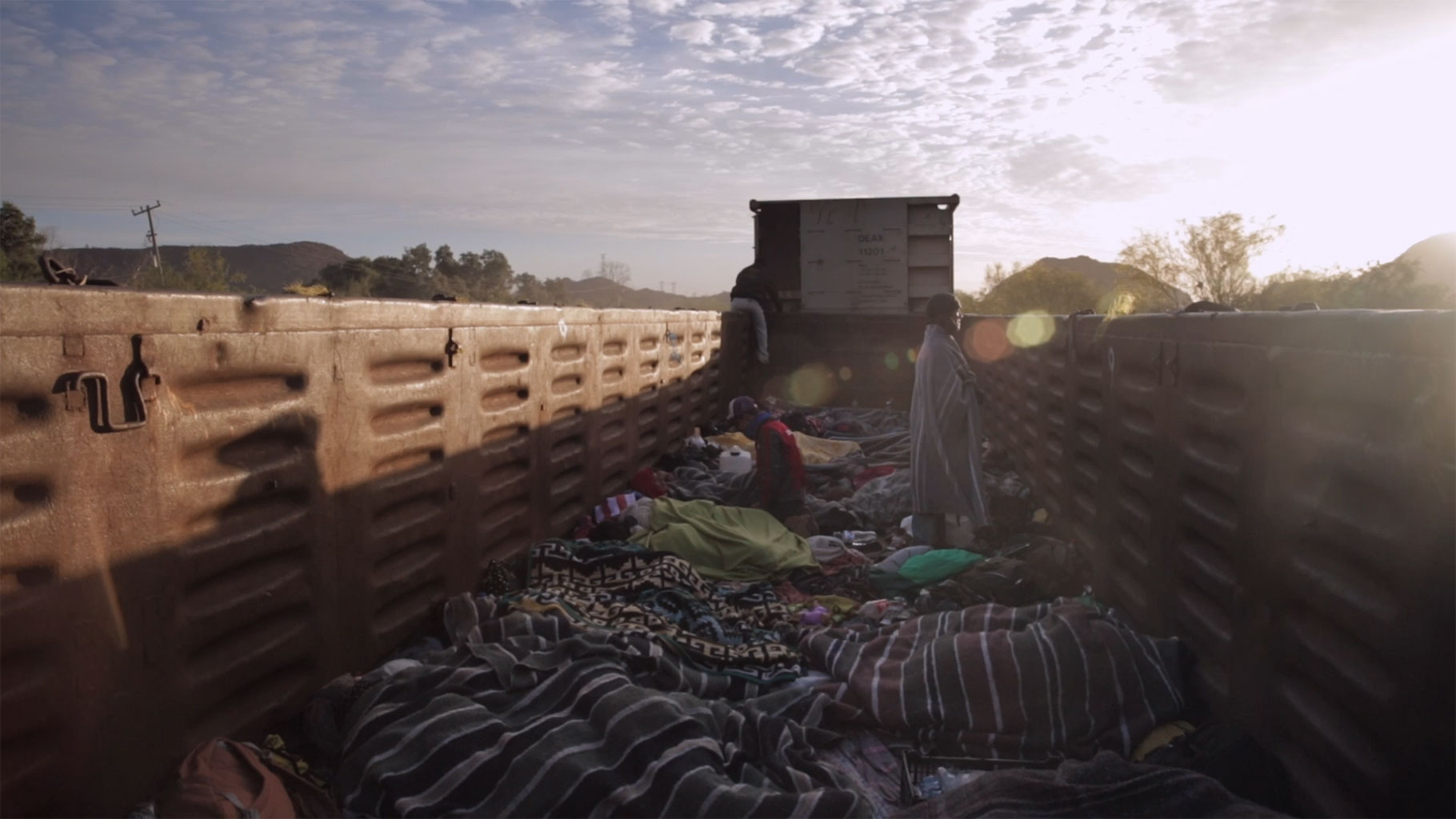
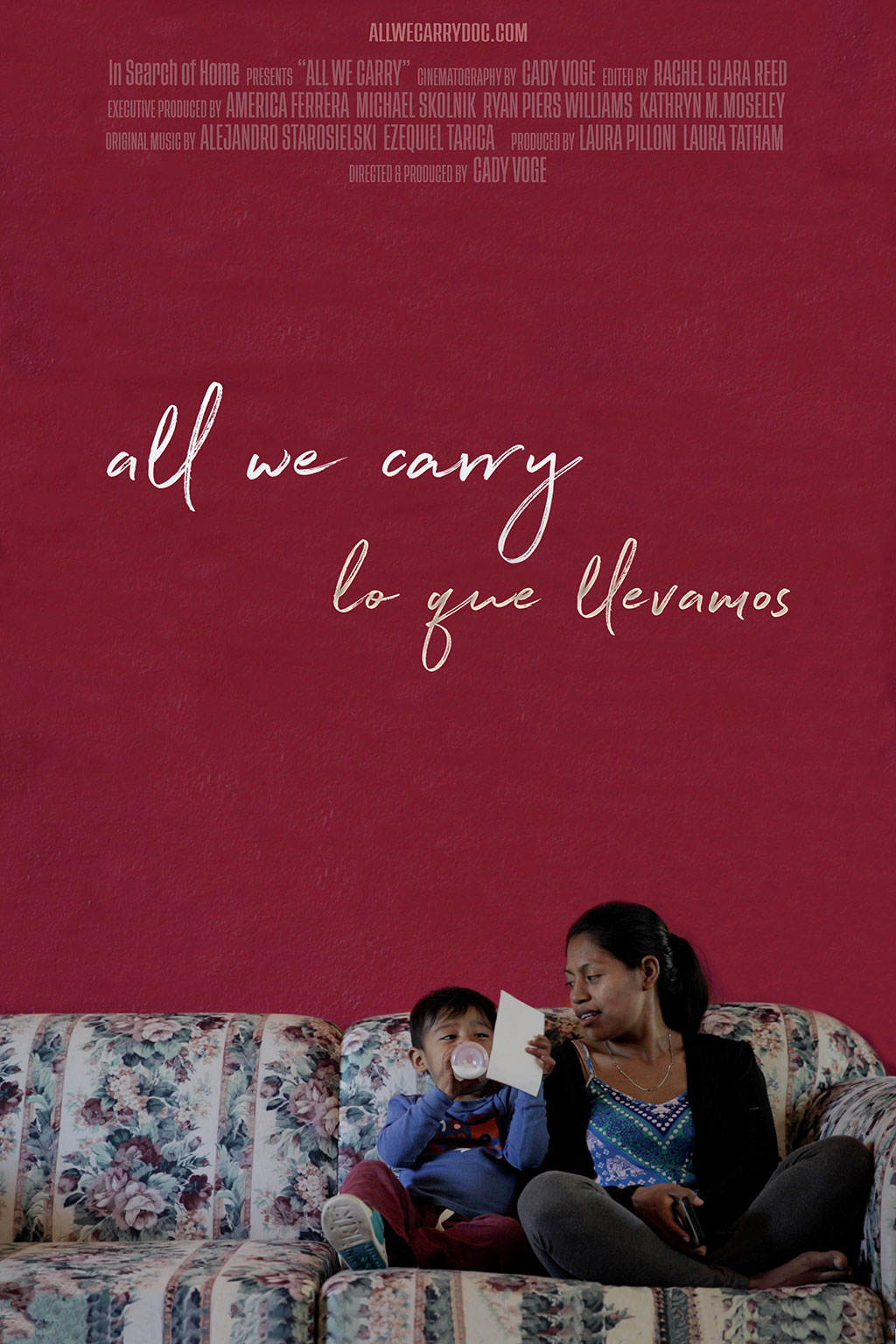
All We Carry shows that the act of coming to the U.S. or leaving one’s home in Latin America is not one-dimensional. “[The film is] not only about the golden opportunity of the U.S., and the horrible place [the migrants are] leaving, but it’s also the challenge,” Voge explains, of the nuance. “[The U.S. is] also beautiful and it’s challenging, and the place that many people are leaving is also beautiful and challenging.”
Once Magdiel, Mirna, and Joshua finally enter the U.S., they are immediately separated. Magdiel is held in a detention center in San Diego California, which he remarks is similar to a prison. Mirna and Joshua were also held in a detention center for nineteen grueling days, until they were released and traveled to Seattle to live with Mirna’s sister.
While staying in Seattle with Joshua, Mirna painfully recalls another mother who was forcefully separated from her son and acknowledges that it could’ve been her and Joshua instead. The audience is also shown glimpses of the couple’s phone calls when they are separated, as they prepare for the possibility that they might never see each other again. Thankfully, after enduring three months of detention, Magdiel is transferred to Seattle and finally reunited with his family.
“Their mental health and everything they had gone through definitely impacted how we told the story in multiple ways,” Voge said. “Pulling out the universal elements of these particular experiences that they have was really important.”
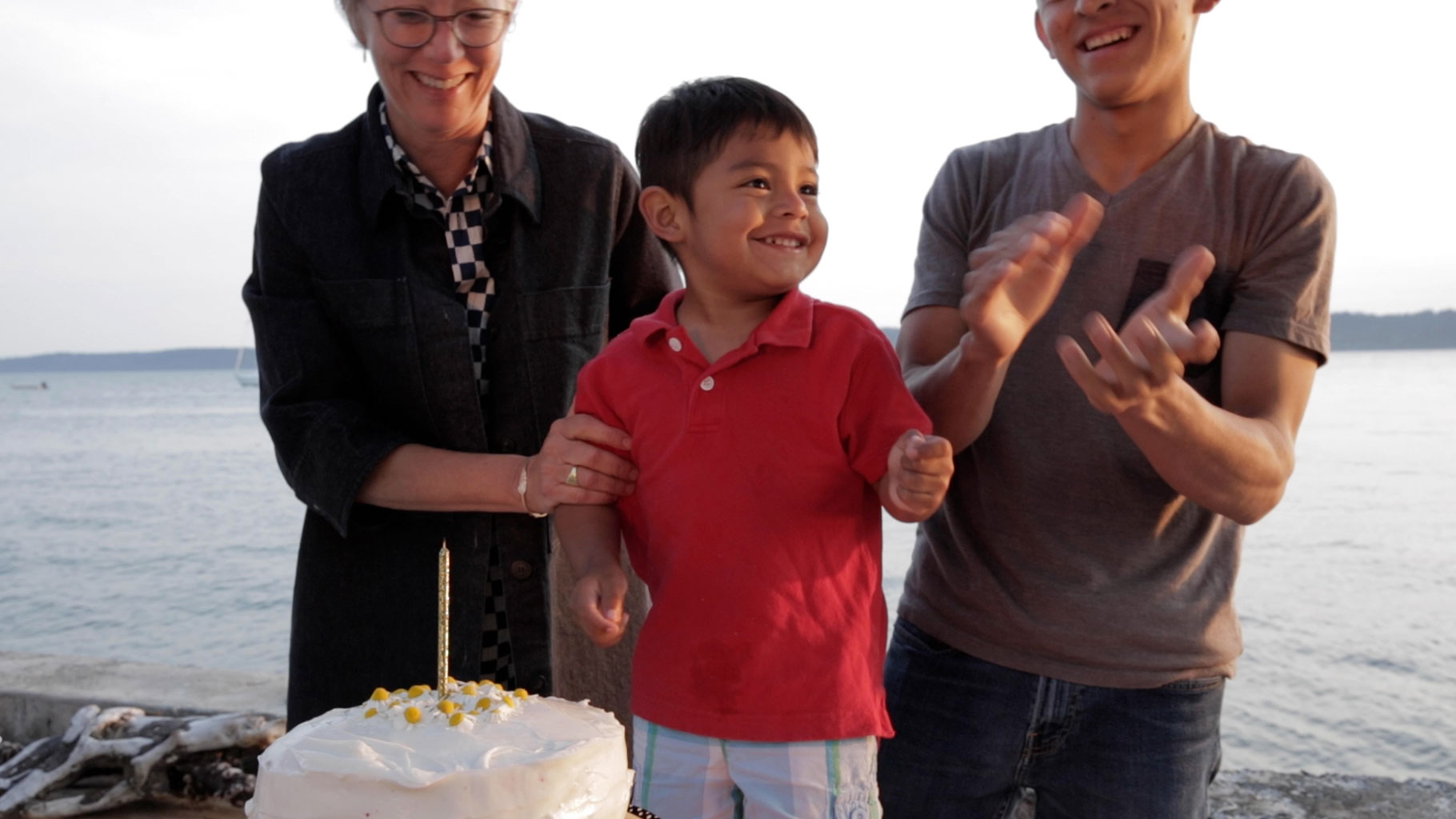
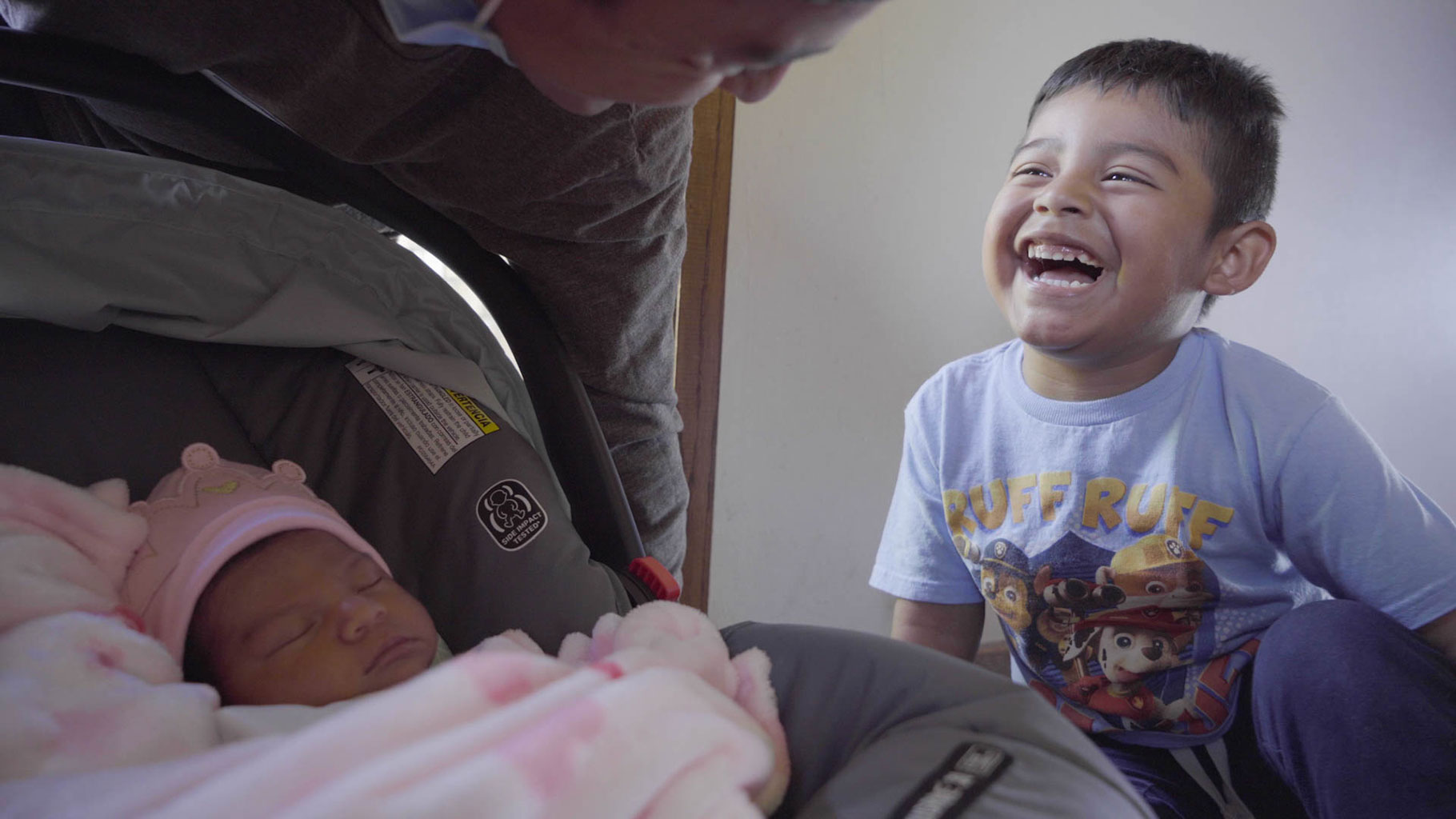
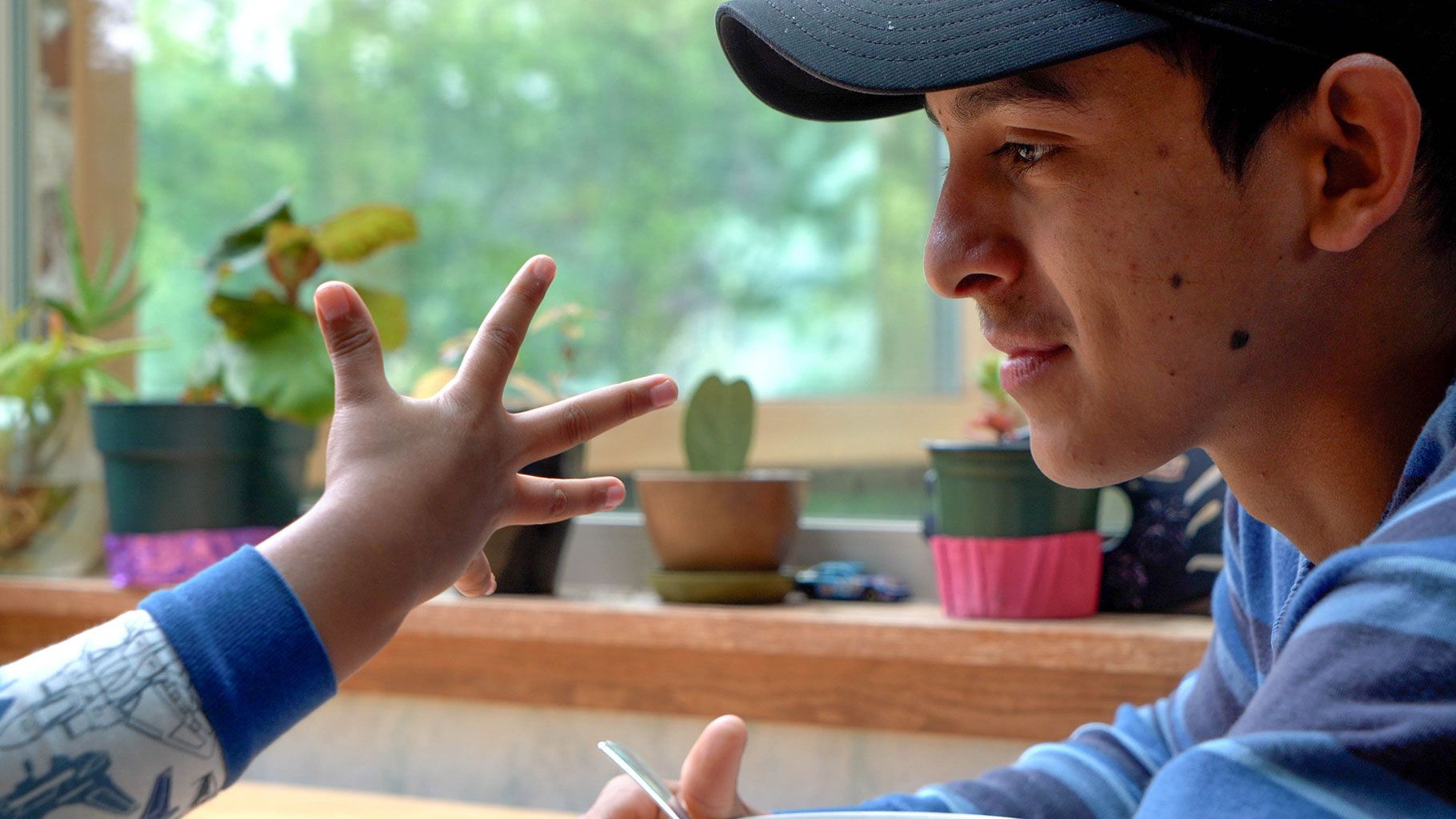
Rebuilding in the United States
Once reunited in Seattle, the family manages to be sponsored by a local Jewish synagogue that is associated with the Northwest Jewish Coalition for Immigrant Justice. Throughout the film, Magdiel, Mirna, and Joshua connect and bond with another family of immigrants. It’s a beautiful display of unity, as synagogue members help Magdiel and Mirna adapt to their new environment, provide them with a house to stay, look after Joshua, and celebrate Christmas with them.
“They have this beautiful connection with this Jewish community, and we see all the giggles in the car with the synagogue, these kinds of stand-in grandparents, and how beautiful that connection is for both sides,” Voge explains. “It’s like they’re bringing so much joy to this community, and vice versa.”
As these positive events are happening, the family remains under the stress of preparing for a hearing that will determine the rest of their lives. Yet despite all the heartbreak, there are moments of prosperity and happiness that reflect the universality of their personhood. An extremely powerful moment occurs when the family experiences snowfall for the first time, showcasing how refugees find moments of solace and peace after surviving traumatic experiences.
“This type of story is the type of story that I love to tell – [with] topics that are very timely, very newsy, but told in a very personal, intimate way, zoomed completely into one person or one family’s experience…” Voge explains, who ran an educational nonprofit called One World Youth Project before she became a journalist. “I still always think of storytelling as a tool for education.”
Another profoundly touching moment unfolds when Mirna describes Honduras to Joshua, who has no memories of his birthplace. As she narrates, the screen transforms into sweeping luxurious aerial shots of Honduras, showcasing its lush forests and winding rivers. The breathtaking images contrast starkly with the harsh realities faced by the young family, highlighting the beauty they were forced to leave behind while underscoring the involuntary nature of their departure.
”You see how lush and beautiful it is, and how much she loved growing up in a rural area,” explains Voge. “People might have stereotypes about people in the U.S., in rural areas. You might think everyone who lives in the city might think, ‘Everyone who lives in a rural area just wants to get out…” There might [also] be ideas like, ‘Everyone coming from Central America is coming from a city, and they’re all fleeing gang violence,’ but neither of those things are the case.”
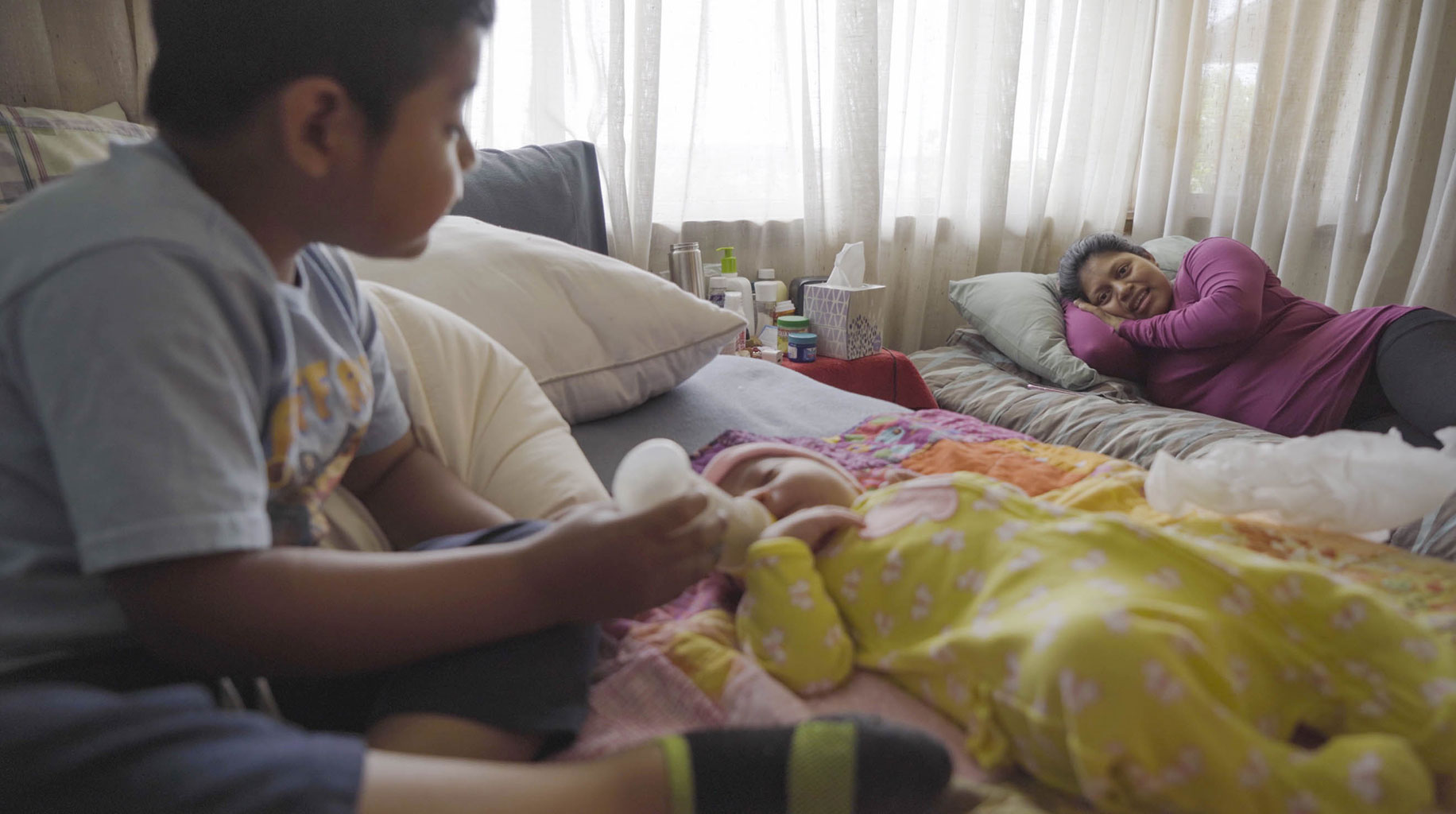
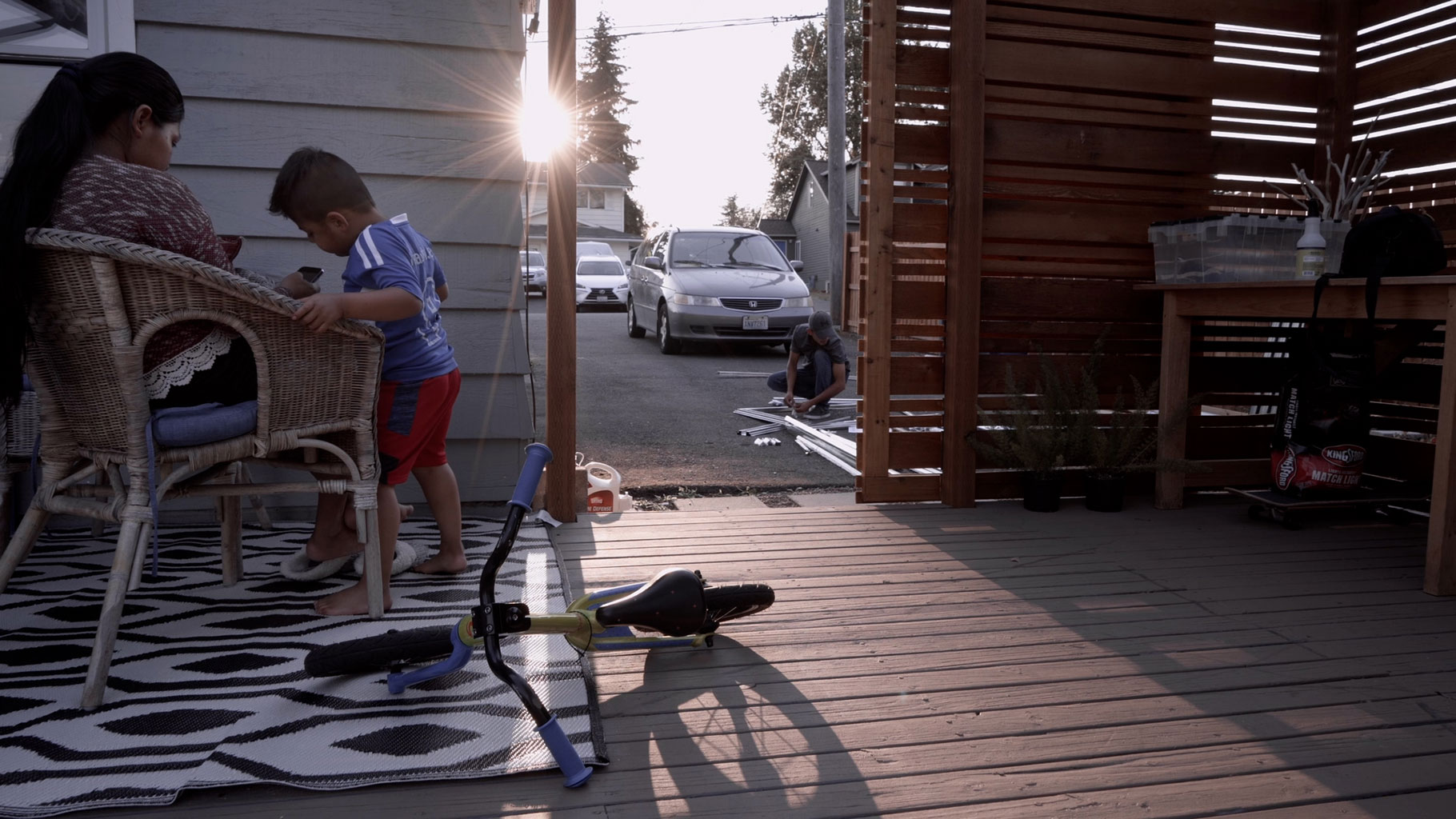
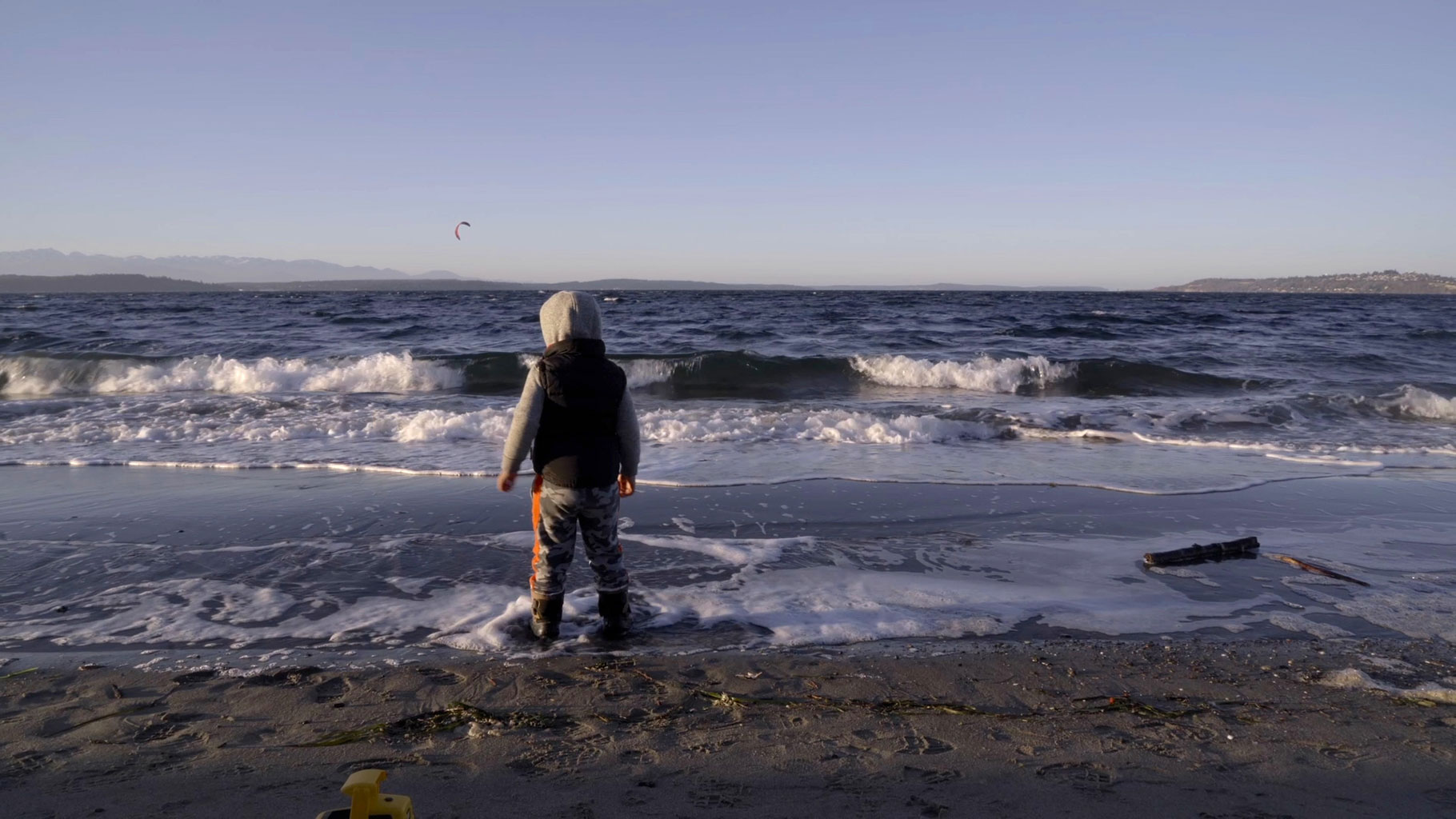
Voge is currently working on her next documentary feature film, which will examine the issue of abortion and reproductive health following the overturning of Roe v. Wade by the Supreme Court in 2022. The film will feature a gynecologist who is attempting to start a reproductive healthcare clinic that will provide abortion care.
“She’s trying to start it in a boat or some floating vessel in federal waters in the Gulf of Mexico that would serve patients,” Voge comments, noting that the Gulf states all currently have abortion restrictions. “Once again, it’s a topic that’s very ‘newsy’ that I want to take a much more personal look at through the lens of a doctor who’s becoming an activist.”
Voge’s camera is not only a tool, but a gateway into the heart of the human experience. Through her cinematic artistry, Voge transforms serious, heartbreaking stories into powerful educational experiences that don’t only seek only to entertain, but spark empathy, understanding, and dialogue about the struggles and triumphs of those displaced by conflict and hardship.
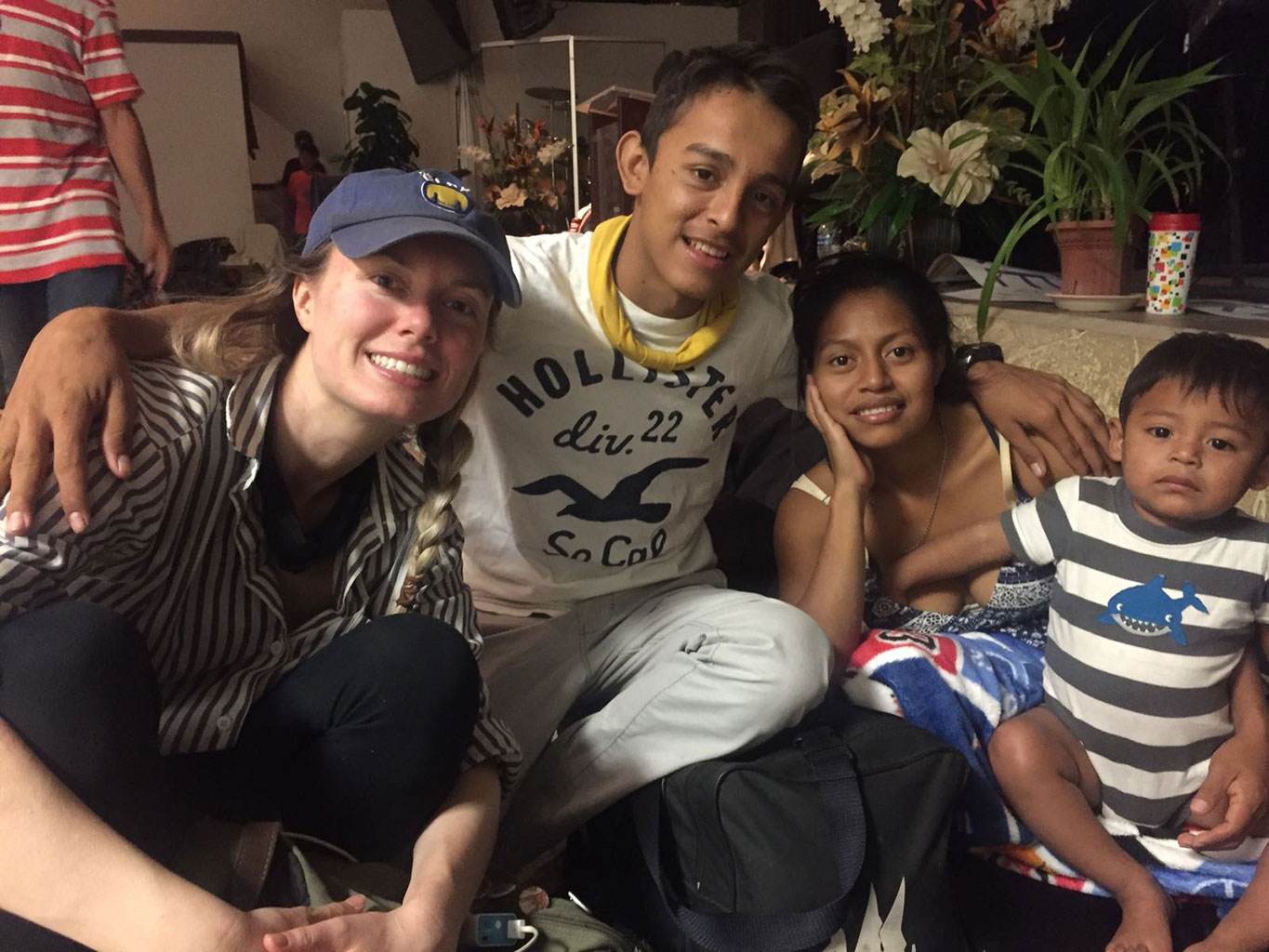
Filmmaker Cady Voge with the family
All We Carry Documentary Film Trailer
Related Resources
Northwest Immigrant Rights Project
Northwest Jewish Coalition for Immigrant Justice
International Rescue Committee
The UN Refugee Agency
Ω




